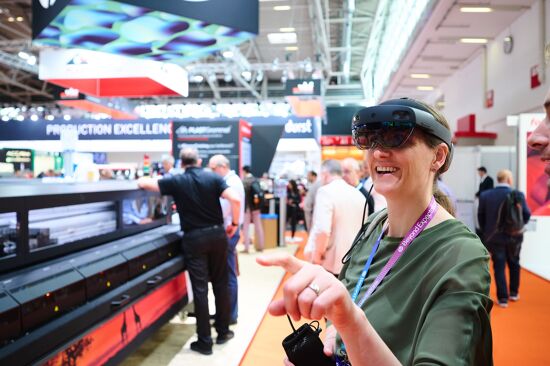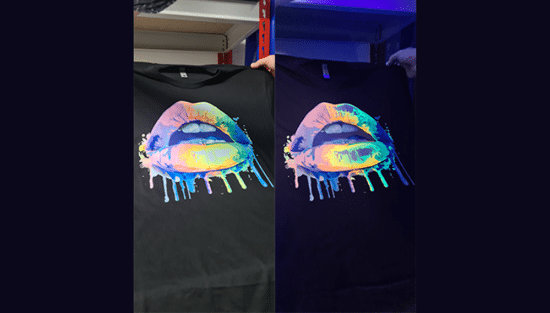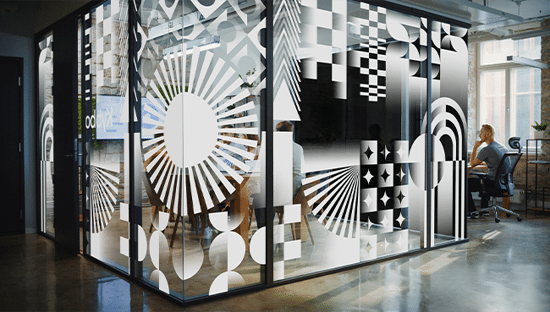Archroma highlights sustainability options for textile print
Alexander Wessels, chief executive of Archroma, said it is a “misconception” that innovation and sustainability need to come at a premium.
Archroma, a company that provides colour and specialty chemicals to the textile supply chain, has issued a call to companies active in the textile print sector of the market to consider using more sustainable materials and consumables when producing work.
Formed in 2013 when private investment firm SK Capital Partners acquired the textile, paper and emulsions businesses of Clariant, Archroma has gone from strength-to-strength over the past three years, expanding its range of sustainable options for textile print companies.
In 2014, Archroma acquired 49 percent of M. Dohmen, an international group specialising in the production of textile dyes and chemicals for the automotive, carpet and apparel sectors, and in July of last year, the company added the global textile chemicals business of BASF.
Switzerland-based Archroma now boasts a total of 25 production facilities around the world; 11 in the Americas, eight in the EMEA region and six in Asia.
Upon celebrating its three-year anniversary on October 1, Archroma called out to the textile print market – one of a number of sections of the textile supply chain that it supports – for companies to consider using more sustainable products. The firm provides chemicals for the pre-treatment, dyeing, printing and finishing of textiles.
Alexander Wessels, chief executive of Archroma, said that the company is able to utilise its knowledge of the market that it had established since its foundation to support textile print companies looking for more sustainable options, adding that it is a “misconception” innovation and sustainability need to come at a premium
“Archroma is already a leader in driving sustainability in the value chain; we intend to build on that position, making use of innovations we have developed and continue to develop for implementation use across our markets,” Wessels said.
“Archroma is now on a strong top and bottom line growth curve, and we have been rapidly expanding innovation expenditure since we carved out the business from its previous owner.”
Wessels added: “It is a misconception that innovation and sustainability need to come necessarily at a premium. Eventually for any solution or product to find acceptance in the mainstream of business it cannot command a high premium. There is value to be absorbed and derived in every part of the supply chain.
“Technologies and innovation eventually need to be created in a manner that it is made affordable to everyone. In its first three years, it is a mindset to challenge the status quo and everyday try to make our customers’ products and processes more sustainable.
“Archroma has shown that this is possible, and we intend to continue on this path well into the future.”
Topics
Interested in joining our community?
Enquire today about joining your local FESPA Association or FESPA Direct
Recent news

Streamlining personalisation with tech: Insights from the SmartHub Conference 2025 speakers
Personalisation Experience 2025 (6 – 9 May 2025, Messe Berlin, Germany) is running its inaugural SmartHub Conference from 6 – 8 May 2025.

Special Effects in DTF: How Neon Inks Are Making Apparel Pop
Neon fluorescent inks are the latest innovation in DTF printing, offering vibrant, eye-catching effects under both daylight and UV light, giving apparel decorators a competitive edge. Testing shows good wash durability, though market perception of added value is still developing. With increasing adoption and ongoing technological advancements, neon represents a significant upgrade for creative customisation.

Unlocking Growth Opportunities in the Printed Personalised Apparel Industry
The printed personalised apparel industry is booming, projected to reach $10.1 billion by 2030. Driven by consumer desire for self-expression and branding needs, technological advancements like DTG/DTF and e-commerce integration are key. Sustainability, eco-friendly materials, and on-demand printing are crucial growth drivers. Businesses leveraging these trends, including AI and social media, have significant commercial potential.

How to grow your business with white ink applications
Opaque white ink is revolutionising signage, vehicle graphics, wallcoverings, short-run and wood packaging, and window blinds by enhancing vibrancy and clarity. This enables printers to offer high-demand, standout products, boosting profit margins. HP Latex white ink applications and their large format printing solutions will be showcased at FESPA 2025 in Berlin.